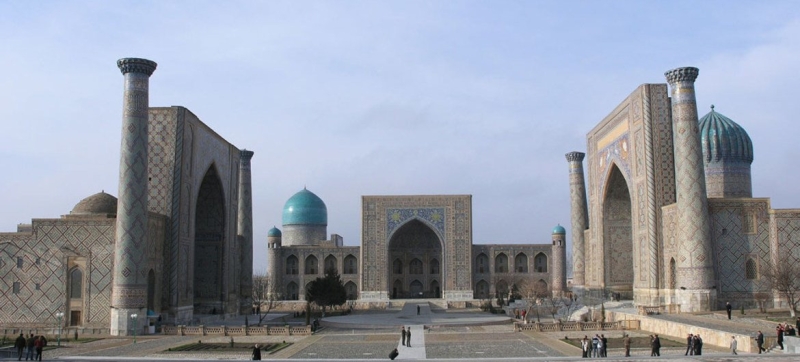
Registan Square in Samarkand, Uzbekistan UN expert: Constitution and human rights should not be violated during urbanization in Uzbekistan Human Rights
There is a huge gap in Uzbekistan between the legal protection of the right to housing and its implementation in everyday life, said UN Special Rapporteur on the right to adequate housing Balakrishnan Rajagopal following his official visit to the country.
Rajagopal welcomed the adoption of new legislation in Uzbekistan in recent years, including a new constitution, which aims to improve legal protection against arbitrary expropriation of property and demolition of houses, and to ensure the participation of residents in urban planning.
“But these laws are often not respected in daily practice due to lack of awareness, non-implementation and the absence of effective remedies for non-compliance, particularly in the construction sector,” the Special Rapporteur said.
Housing Expropriation
Uzbekistan is undergoing urbanization projects on an unprecedented scale, he said, sometimes demolishing entire neighbourhoods to make way for new urban developments. Often this happens without sufficient grounds, and decisions are made without the participation of the public, in particular local residents, the UN expert noted.
“The independence of the judiciary remains a challenge. The vast majority of cases involving developers and residents appear to be decided in favour of the developers,” he stressed. In addition, the Special Rapporteur finds that out-of-court complaint mechanisms often fail to provide effective and timely protection.
The independent expert warned that compensation for expropriated housing is often inadequate, delayed or not received at all. Some demolitions and evictions are carried out with disproportionate force, with homeowners sometimes forced to leave their homes due to dangerous construction near their homes and the disconnection of water and gas supplies. When evicted residents are offered new housing, it is often in new apartment buildings on the outskirts of cities.
Good intentions in practice
“House demolitions and forced evictions have occurred even in protected cultural heritage sites such as Samarkand and Bukhara,” Rajagopal said. He called on UNESCO to ensure full respect for the right to adequate housing in the run-up to the 2025 UNESCO General Assembly in Samarkand.
The Special Rapporteur also expressed concern that victims of forced evictions, human rights defenders, lawyers, as well as bloggers and journalists writing about arbitrary housing demolitions, are subjected to intimidation, harassment or detention on dubious grounds. In at least one case, a victim is being held in a closed psychiatric institution.
“There are often apparently good intentions to address housing issues. But it is time to go beyond good intentions – we must see results, not just laws and plans on paper,” the Special Rapporteur concluded. Rajagopal will present a detailed report on his visit to the Human Rights Council in March 2025.
Special Rapporteurs are part of what is known as the Special Procedures of the Human Rights Council. Special Procedures experts work on a pro bono basis; they are not UN staff and do not receive a salary for their work. They are independent of any government or organization and serve in their individual capacity.
Read also:
